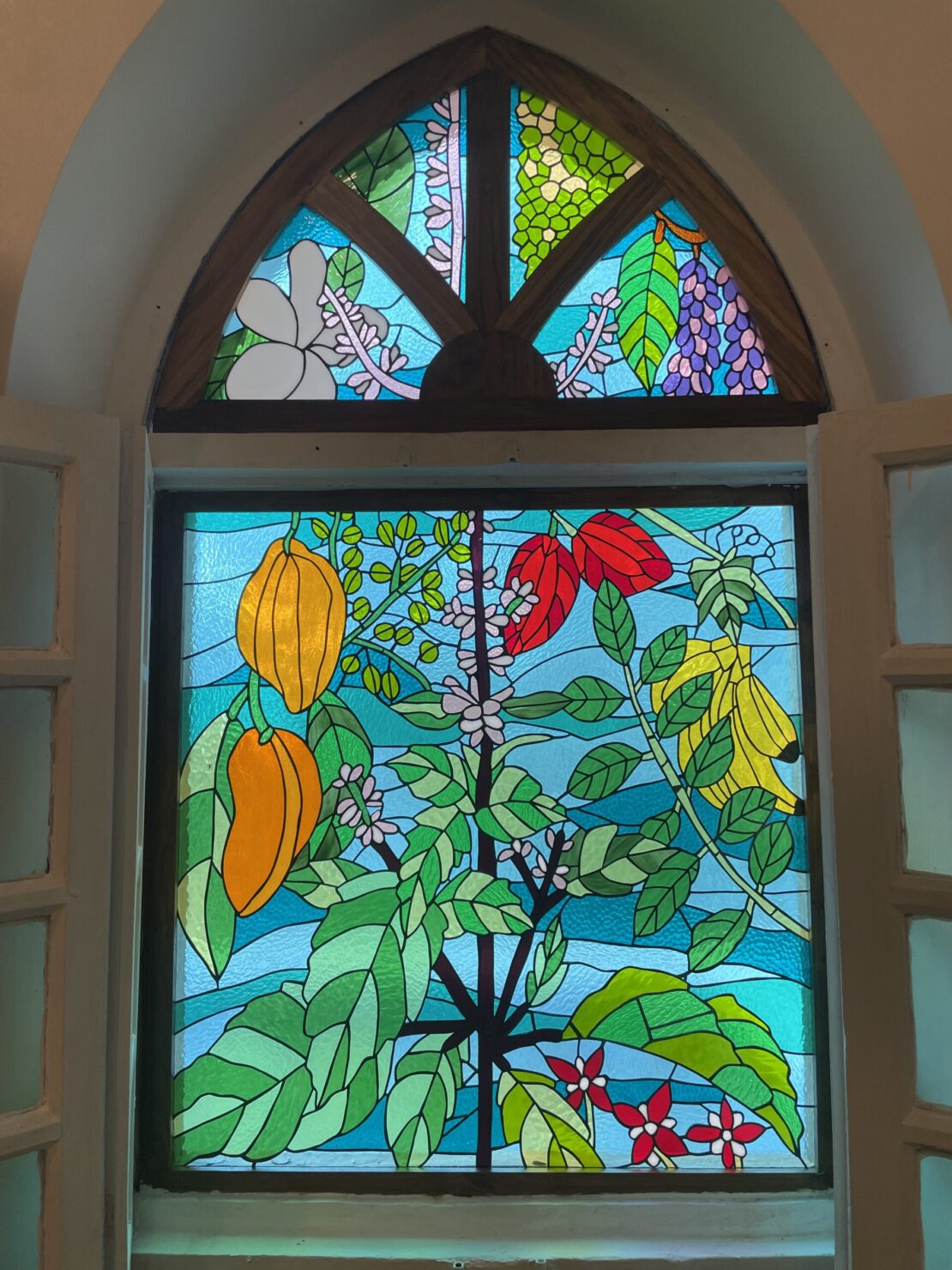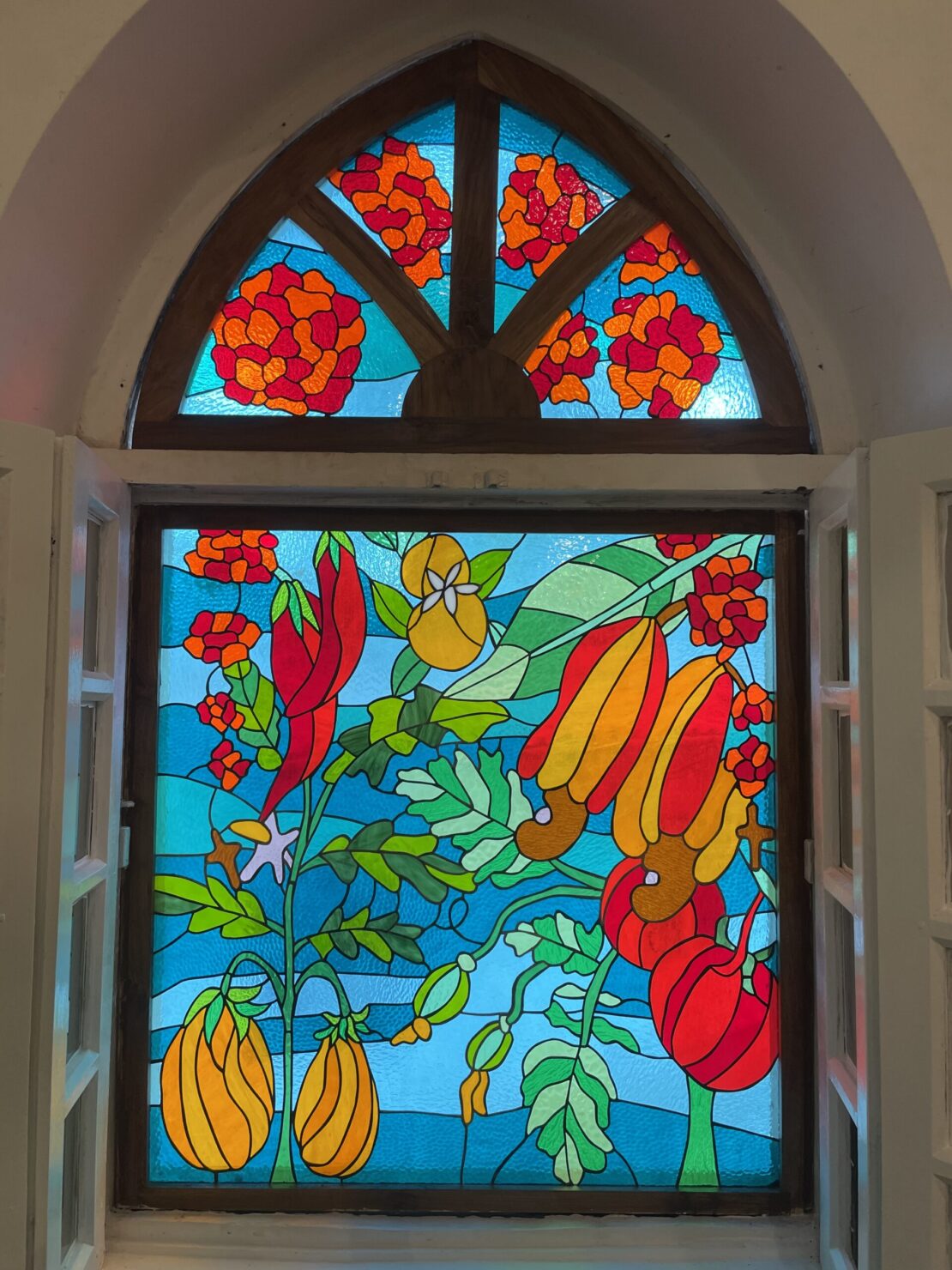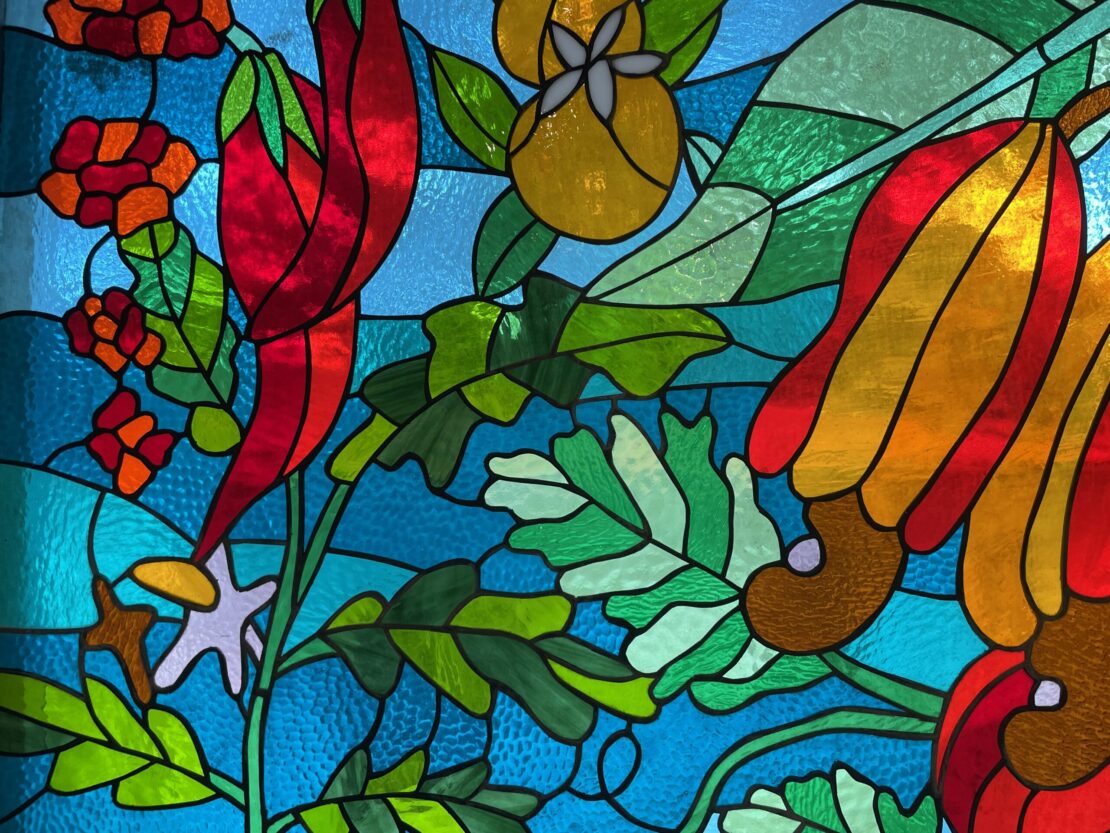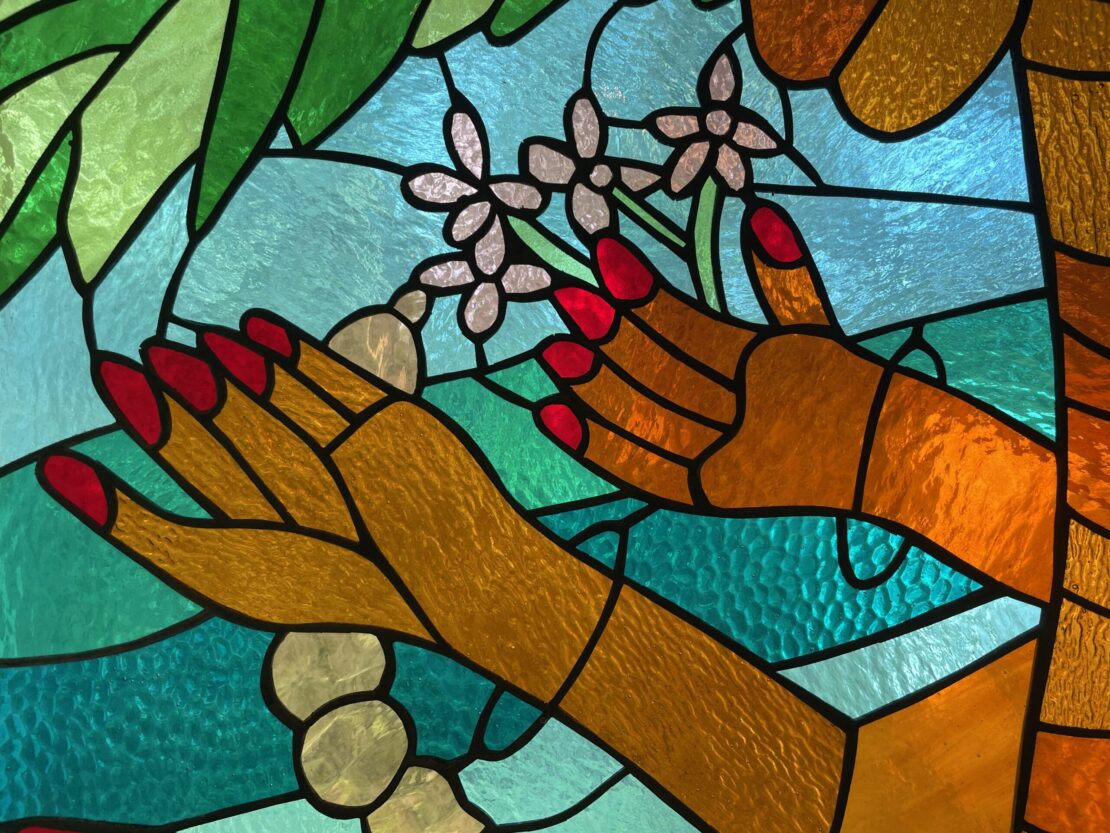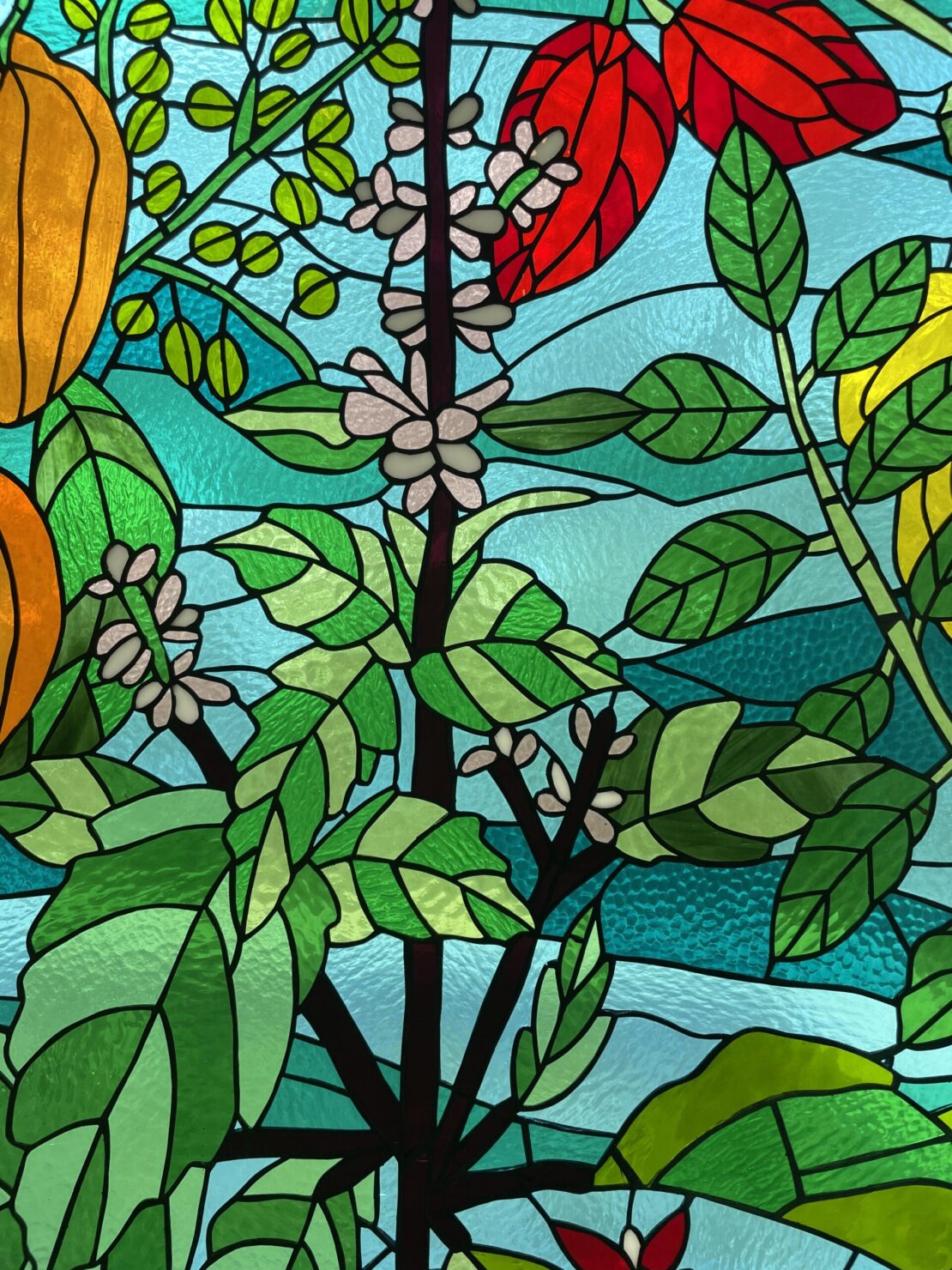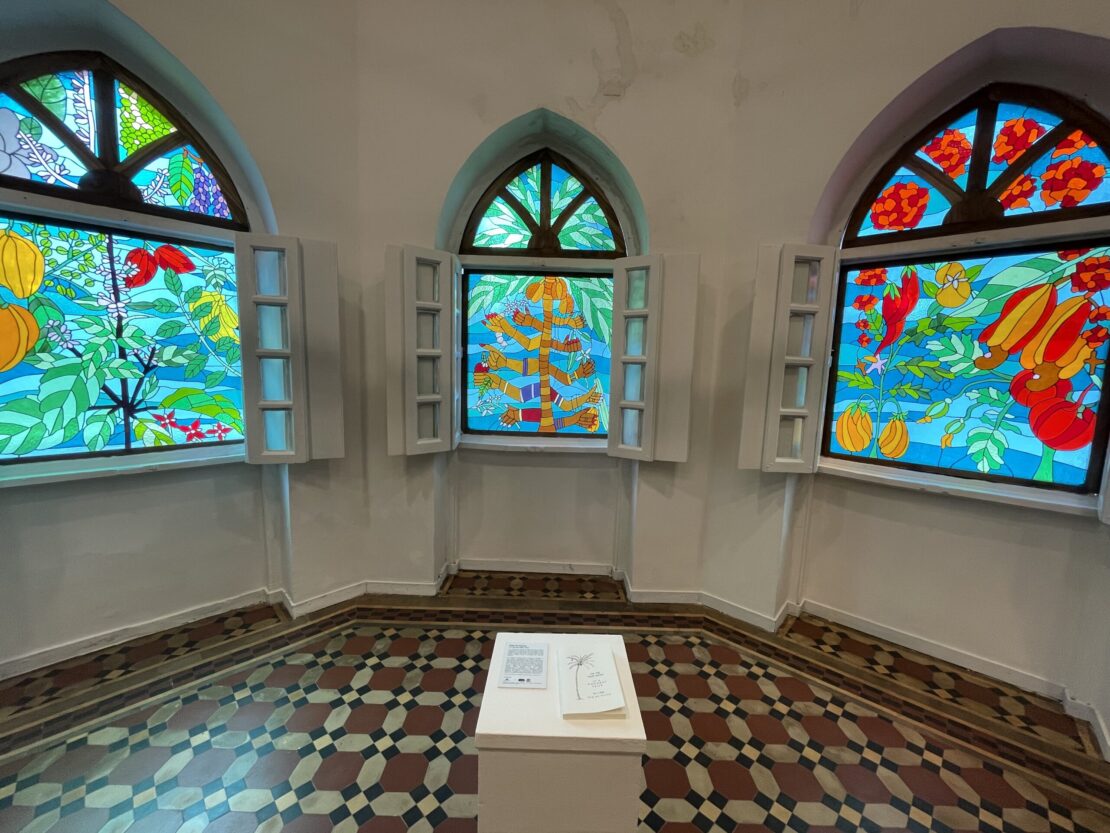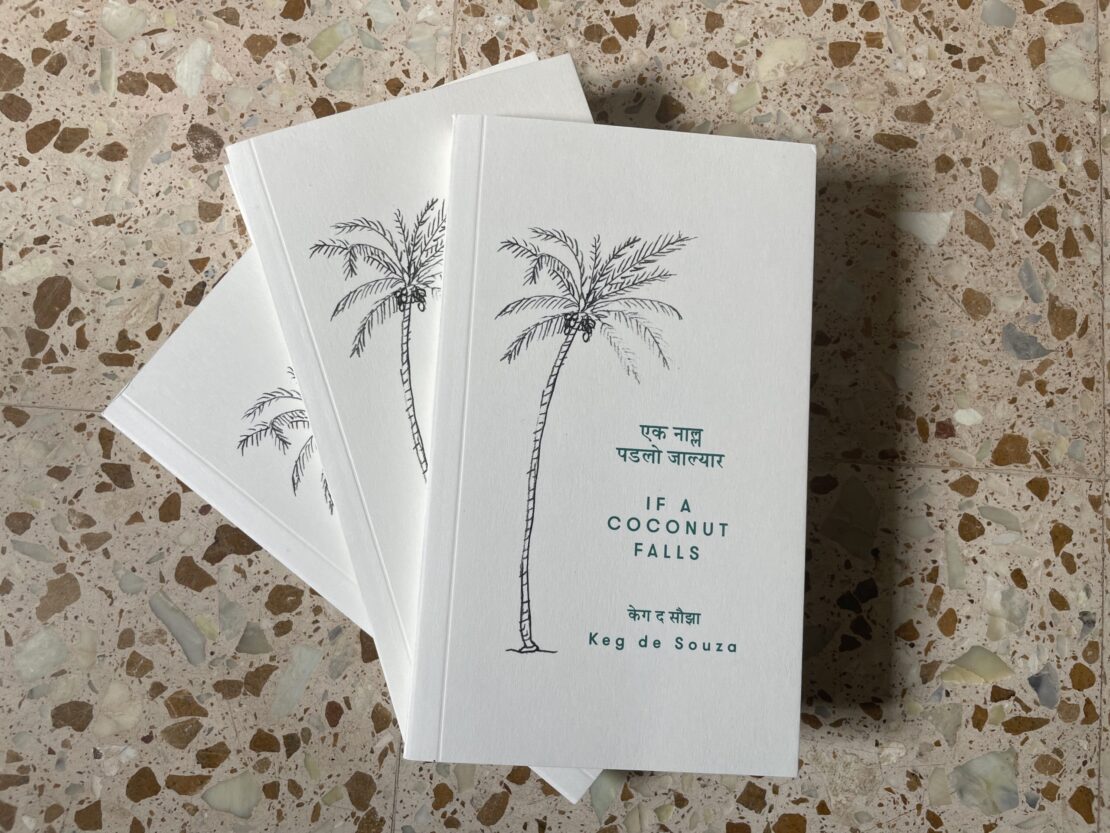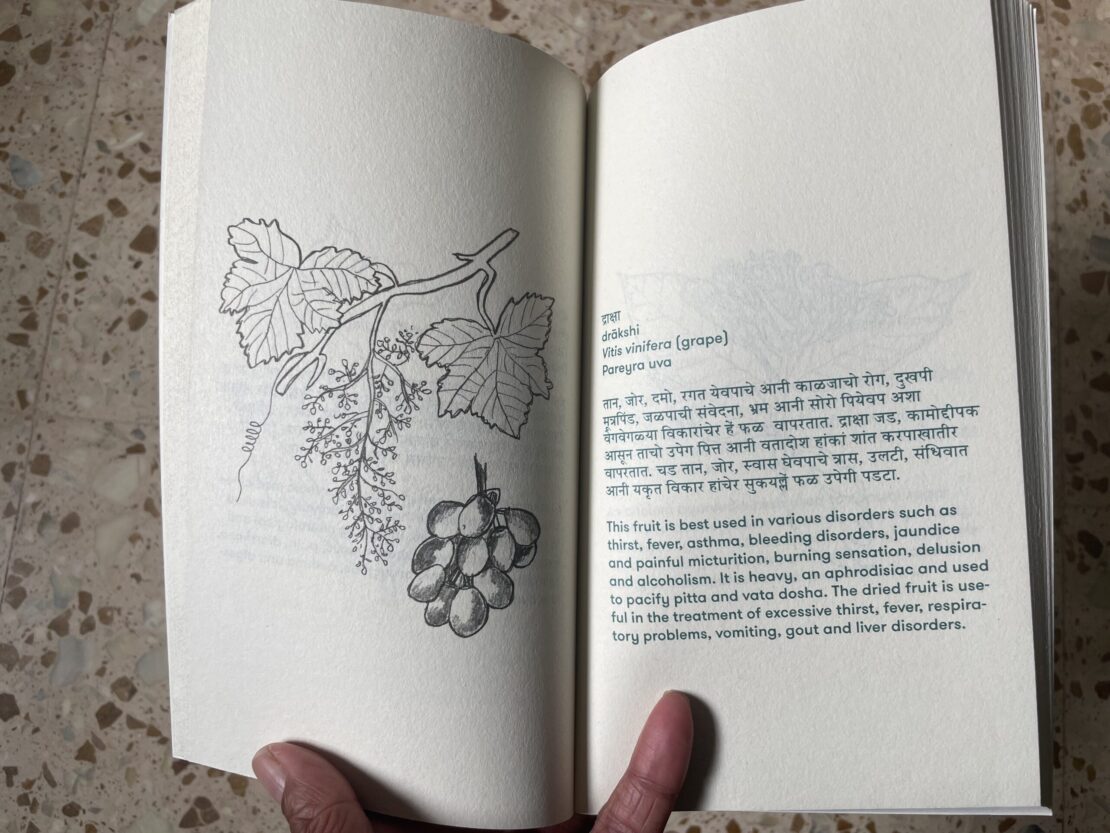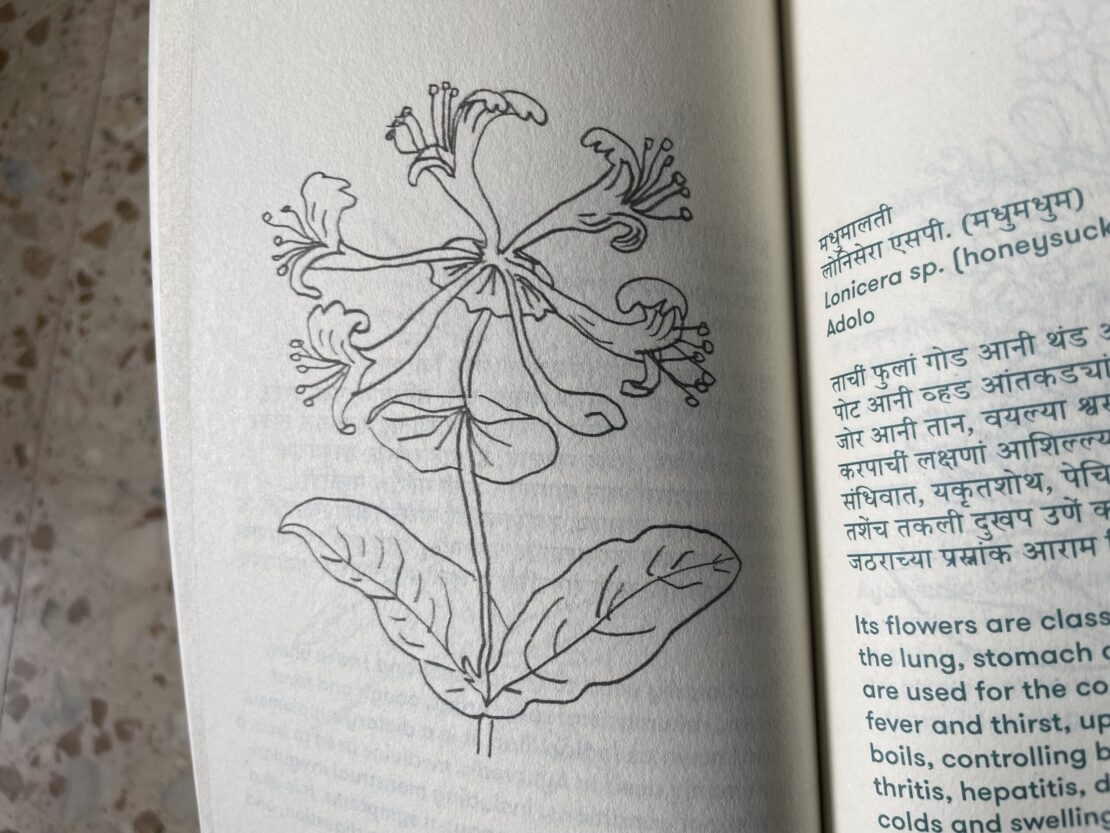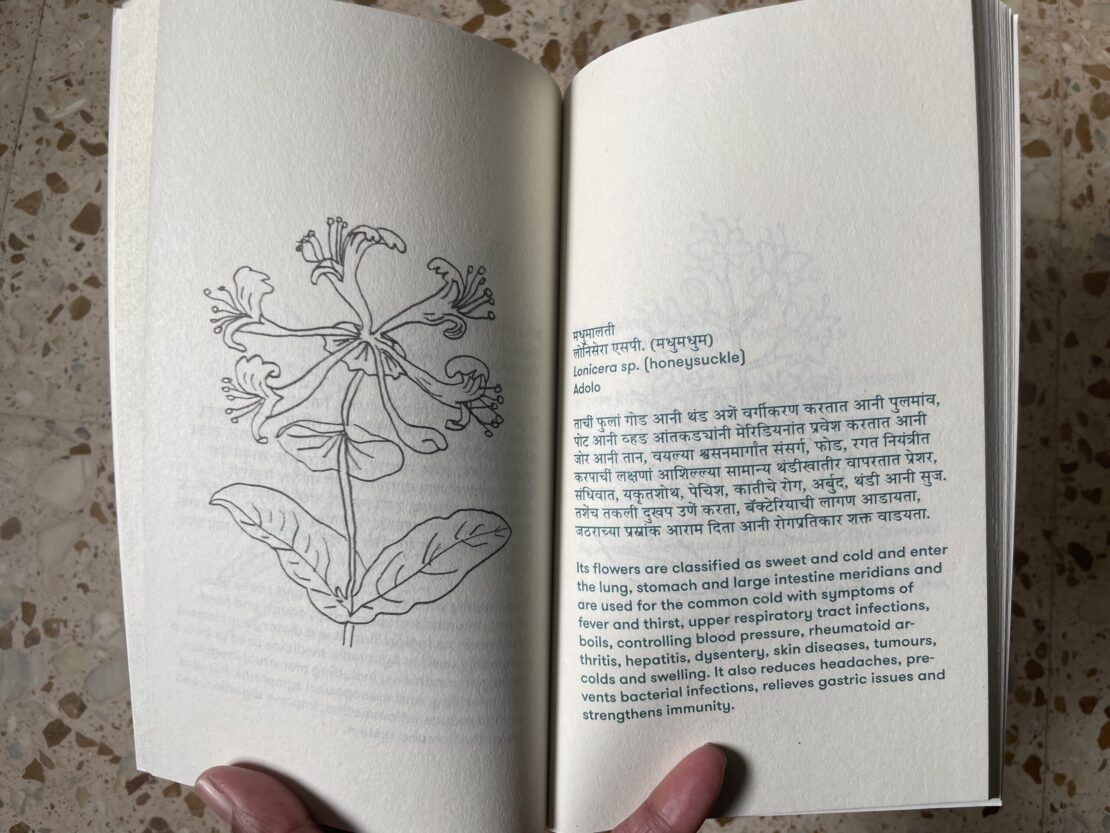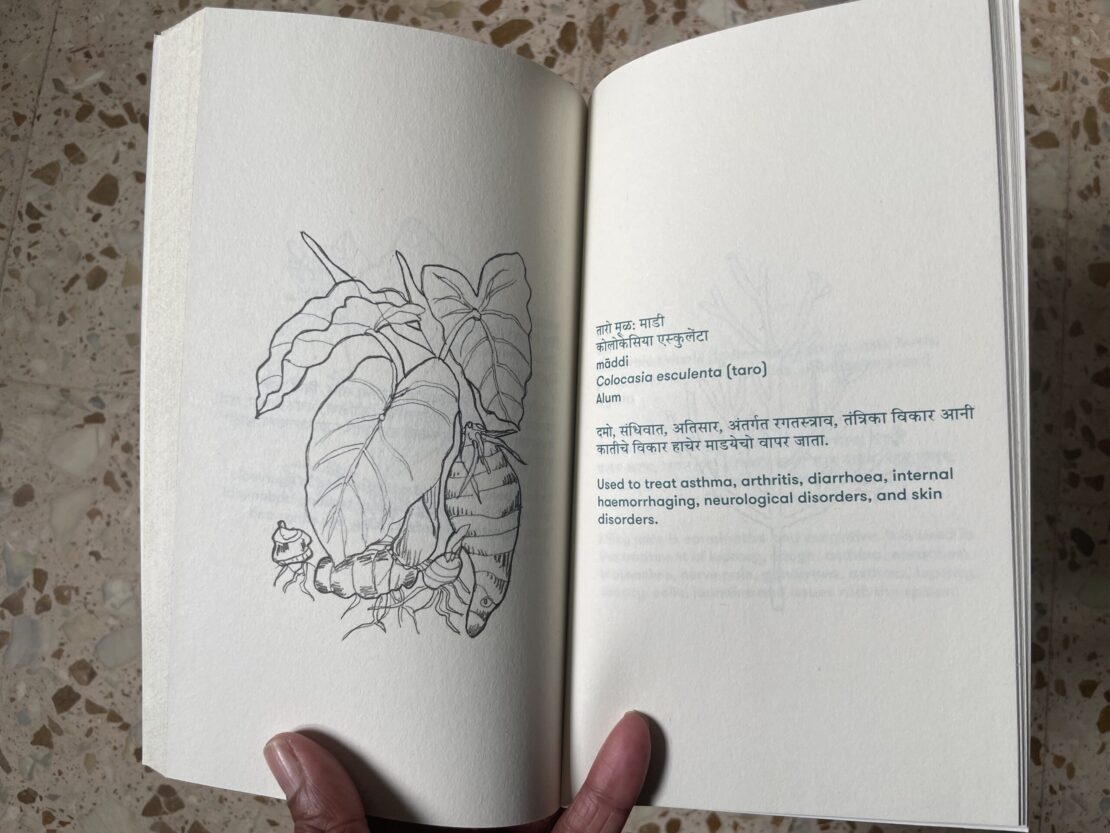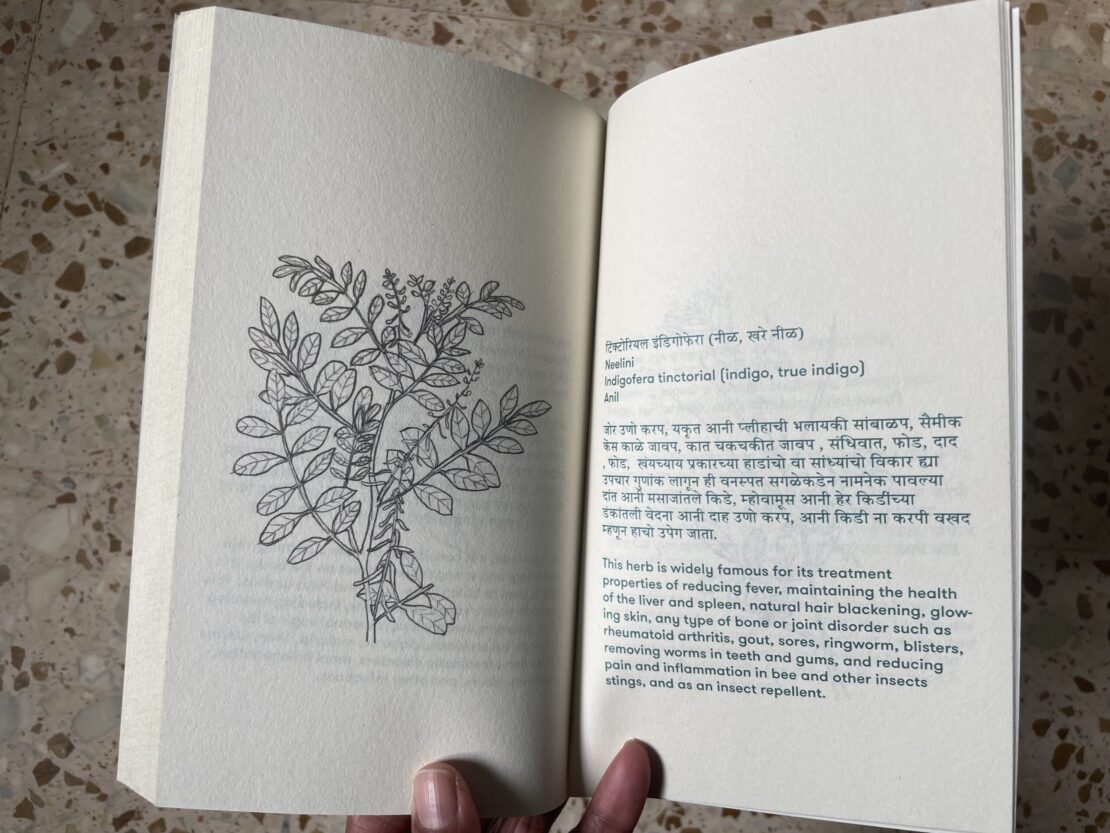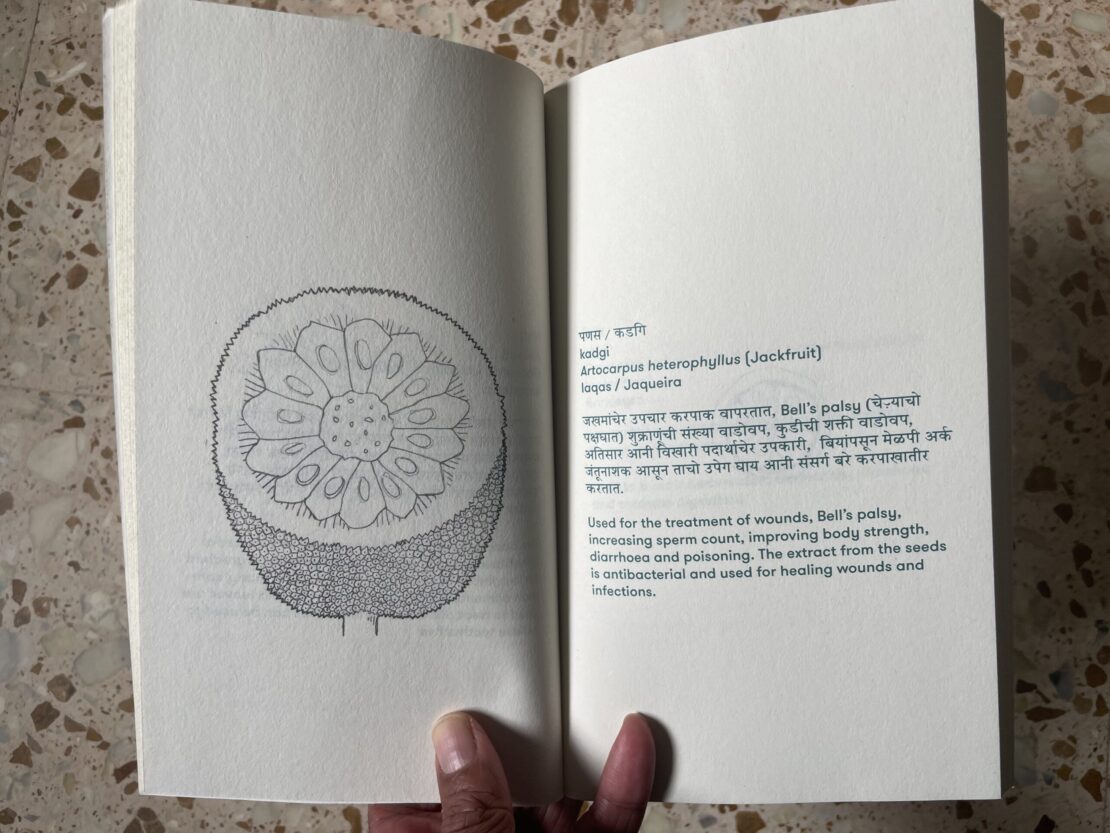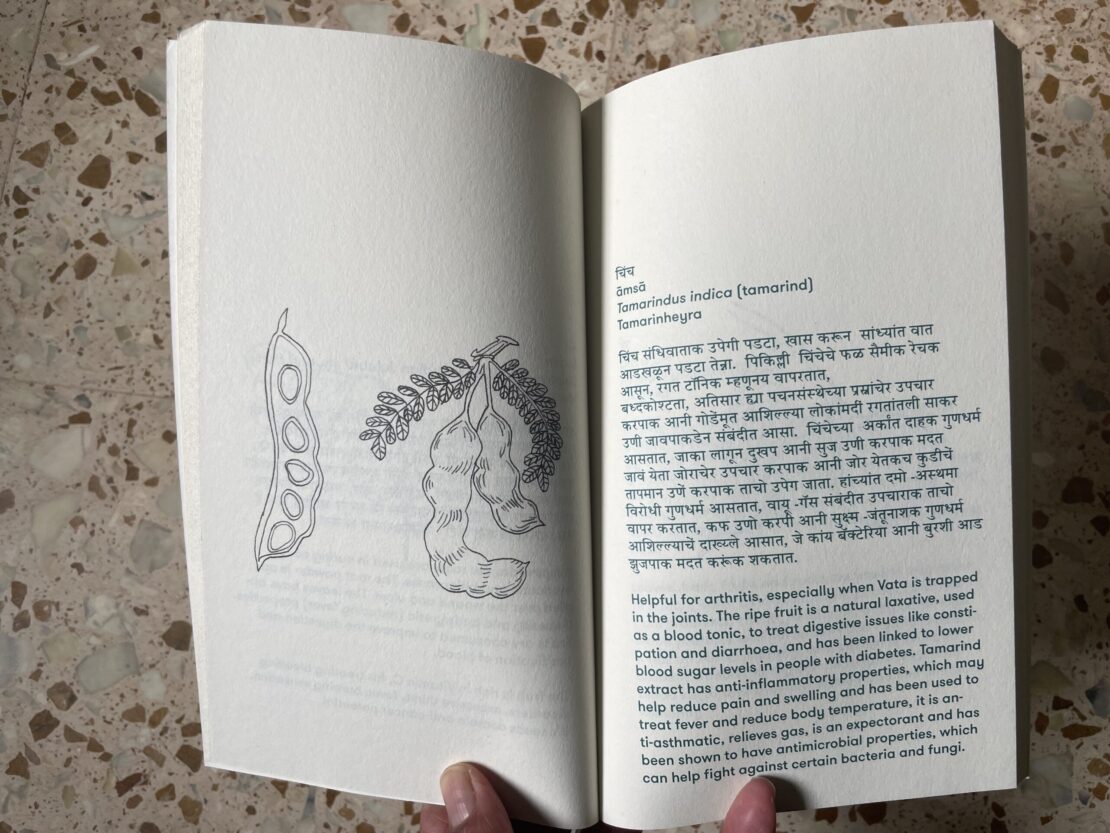Description
If a coconut falls (2024)
Stained glass windows, printed publication
Sunaparanta Goa Centre for the Arts, Goa, India
More on the publication [here]
We cry our cry of poetry. Our boats are open, and we sail them for everyone.
― Édouard Glissant, Poetics of Relation (1990)
If a coconut falls takes its starting point from a Goan saying my mother told me: ‘If a coconut falls from a tree in Goa it will either land on: a pig; a priest or a de Souza’. What seems like a simple observational adage about the commonality and abundance of these things in Goa, embodies a colonial history through: food, Catholicism and language – even through the Portuguese surname I hold.
If a coconut falls responds to Manuel Erédia‘s Suma de árvores e plantas da Índia intra Ganges (1612), an early colonial attempt of a compendium of South Asian medicinal plants – that has resided in Abby de Tongerlo in Belgium since the mid-18th Century and contains 74 illustrations of Indian plants and descriptions of their medicinal uses.
The illustrations of this archive are finely drawn, intended to provide Erédia’s patrons (colonial elites) with an accurate idea of the most useful South Asian healing plants. This knowledge was to help preserve Portuguese soldiers’ lives in the unfamiliar tropics, but also served to identify medical commodities for economic potential. Missionary Jesuit priests stationed in Goa would also learn traditional medicines and local language in order to heal people.
If a coconut falls tells these otherwise lesser-known vegetal narratives of economics, trade and migrations in the history of Goa. In the Suma, we see cultural entanglements of Portugal and Goa – represented through plants brought by the Portuguese and fused with local Goan culture. One example is the cashew originally from Brazil, Goans use the cashew fruit to make feni liquor, registered under the Indian Geographical Indication Act, as a product that corresponds to the geographical location or origin of Goa.
The printed publication responds to paper printing that was first introduced into India in 1556, through St Paul’s College in Goa to spread stories of scripture. Here the printed form is used to expand the healing stories of the plants from the Suma, with accompanying text prioritising Konkani language, then in English serving to centre local language, archive and disseminate medicinal plant knowledge and re-centre traditional knowledge back in Goa as a ‘mirror’ archive of the Suma, that resides across the globe. If a coconut falls also features a series of three stained glass windows, referencing church windows that are usually used to tell the stories of Christ, here they trace local plant narratives through time using plants from the Suma. The first features local native plants pre-colonisation, the second the sharing of local plant knowledge and the third we see cultural entanglements of Portugal and Goa – represented through plants brought by the Portuguese and fused with local culture.
Glissant, E (2010) Poetics of Relation, Ann Arbor: University of Michigan Press
If a coconut falls is supported by: Creative Australia, The Australian Government through the Vice-consol in Mumbai and CreateNSW. With thanks to Onkar Kshirsagar and Tanvi Mishra for production assistance.

